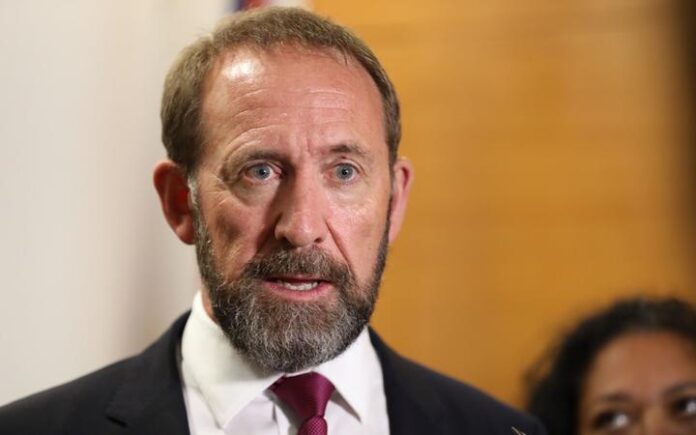Last Thursday (25 March) I was interviewed live on Radio New Zealand’s The Panel about a keynote address the previous day by Minister of Health Andrew Little on the implementation of the review of the health and disability system led by Heather Simpson.
It provided me with a good opportunity to further develop my evolving thoughts on what the Government’s approach to the review should be. I’ve previously described the review as not understanding itself because of the lack of sufficient connection between the text and its recommendations. This presents an extra challenge for implementation.
The Minister’s address was thoughtful. He provided some insight on what is behind the Government’s thinking when it finalises and announces its specific position on the Simpson review recommendations in April https://www.beehive.govt.nz/
Government’s Vision
A feature of his address was to outline the Government’s vision for New Zealand’s health system which involves prevention and wellbeing as well as treatment in the context of achieving equity, partnership with users of the system, consistent high quality services, sustainability, and person and whanau-centred care. I quote the Minister’s summary of this vision in full:
“Our guiding vision is for a health system delivering pae ora / healthy futures for all New Zealanders, where people live longer in good health and have an improved quality of life.
If we are to realise this vision, the reforms need to focus on how we achieve five outcomes, above others. These are:
Equity for all New Zealanders – so everyone can achieve the same outcomes, and have the same access to services and support, regardless of who they are or where they live.
Partnership – through embedding the voice of Māori and other consumers of care into how the system plans and makes decisions, ensuring that Te Tiriti o Waitangi principles are meaningfully upheld.
Excellence – ensuring consistent, high-quality care is available when people need it, and harnessing leadership, innovation and new technologies to the benefit of the whole population.
Sustainability – focusing the health system on prevention and not just treating people when they are unwell – ‘wellness not illness’ – and ensuring that we use resources to achieve the best value for money.
Person and whānau-centred care – by aiming to empower people to manage their own health and wellbeing and put them in control of the support they receive.“
Commendable but there’s a major omission
Commendable and thoughtful as this is, the Minister’s address has a major omission which should have been at the front and centre of his speech – social determinants of health. These are external determinants that drive much of the demand for (and cost of) health services. They include housing access and quality, educational opportunities, environmental factors, occupation, income level, food insecurity, racial discrimination and gender inequity.
The Government hasn’t turned a blind eye to social determinants. Its recent regulations for healthy home standards for rental accommodation establishes enforceable obligations on landlords is a good initiative. It should remove poor rental housing as a driver of health service demand.
Similarly the proposed legislative amendment for transferring fluoridation decision-making responsibility from local authorities to the Director-General of Health which offers much potential to significantly improve oral health.
These are good but isolated initiatives. They could be added to by the Government giving higher priority to legislating for fair pay agreements in order to enhance incomes of more dispersed and vulnerable workers and the recommendations (including increased benefit levels) of its welfare advisory group (this latter inaction is a disgrace).
Remedying Andrew’s omission
But a suite of measures to reduce and hopefully eliminate the risk to the health of New Zealanders of these social determinants should not be simply an additive process. To transition from quantitative to qualitative improvements requires an integrated operational strategy in which district health boards (DHBs) have a central role.
However, if DHBs are to perform this role they must know their populations well. This means DHBs should cover one or two base hospitals providing a reasonably extensive range of 24/7 health services and their wider geographic communities. If the Government were to implement Simpson’s recommendation to slash the number of DHBs in order to create much more distant and centralist ‘mega DHBs’ then they would be unlikely to know their populations well.
Structural change out of sync with how the health system needs to perform is bound to fail so the Government shouldn’t pursue Simpson’s ‘mega DHBs’. But there are two national structural innovations it should seriously consider – one which is inadequately considered by the Simpson review and the other not discussed at all.
First, establishing a Maori Health Authority with equal decision-making powers within its scope to the Ministry of Health. The Simpson review proposes this authority but only with advisory functions. This is not good enough given the high level of inequity in Maori health status. A stronger authority could get into the grittiness of identifying and combatting the effects of social determinants in a way that would benefit all New Zealanders, not just Maori.
Second, a new population health agency has the potential to ensure more national cohesiveness in both health protection (including potentially coordination border security during pandemics) and combatting social determinants. Such an agency would be better placed to reach beyond the health system where these determinants originate from than the Health Ministry and DHBs can, including to local government and housing authorities.
Andrew Little’s keynote address was big picture but his paint strokes need to be sharper and more ambitious.
Ian Powell was Executive Director of the Association of Salaried Medical Specialists, the professional union representing senior doctors and dentists in New Zealand, for over 30 years, until December 2019. He is now a health systems, labour market, and political commentator living in the small river estuary community of Otaihanga (the place by the tide). First published at Otaihanga Second Opinion.






I have a close whanau member who works for the Auckland DHB who told me their DHB is in one big fat mess.
Apparently there is inhouse fighting amongst Management and it is so stressful working in this type of toxic environment she wants to leave despite being told to wait as there will be more and better roles for Maori staff. The issue causing angsts is they have to be far more accountable for Maori health outcomes with Maori health being so dismal, so they are tearing each other apart, not exactly a conducive environment for improving ones health.
Agree 100% .
A once over lightly is not going to fix our healthcare .
This better not turn out to be Disability Strategy 2.0 where they slap each other on the backs for doing such a good job for us cripples but then when you look at it, its just words on paper but still the same dysfunctional BS underneath.
The mega DHB concept is just cost saving in another guise. The unspoken reason for this review was not improvement in delivery it was to reduce the so called ‘deficits’ being run by DHBs in an attempt to keep up with the unfunded demand caused by large scale immigration and poor social conditions. The actual ‘deficits’ are a small fraction of the total budget and seem consistant across all DHBs. This would indicate a tweak of the funding formulas would be a better plan than wholesale reform. Having lived in a small town where the local hospital is a largely empty shell after previous reforms with minor treatment requiring over an hours drive. I would suggest that centralising more services would leave some rural areas even more poorly served.
Alan all the deficits are caused by the bullshit capitalisation charges the Govts charge DHBs for equipment and New Buildings etc.
Remove them and the DHBs would have no deficits.
“…focusing the health system on prevention and not just treating people when they are unwell – ‘wellness not illness’ – and ensuring that we use resources to achieve the best value for money.”
Now: where have I heard this before? Oh yes, that’s right: Annette King, a lot of years ago, when the Clark government came to power.
As I recall, she had grand plans for primary care obviating the need for much of the secondary care that was then being provided in the nation’s hospitals.
And – enthused by her vision for the health service – the designers of the new Wellington hospital in the early noughties produced a hospital which was too small. Including the numbers of car parks, given that many patients are older and rely on cars for transport.
In the current environment, that lack of size has been exacerbated by increasing demand on services. So much for improved primary care services reducing demand on secondary services.
“….social determinants of health. These are external determinants that drive much of the demand for (and cost of) health services….housing access and quality, educational opportunities, environmental factors, occupation, income level, food insecurity, racial discrimination and gender inequity.”
These factors aren’t, of course, within the purview of the health sector, which is powerless to bring about improvements in such areas.
“….hasn’t turned a blind eye to social determinants. Its recent regulations for healthy home standards for rental accommodation….”
The government’s work in this arena, along with its tenancy law changes, have combined to drive up rents to astronomical levels. So: homes may be healthier, but they’re also unaffordable for many prospective tenants.
“….establishing a Maori Health Authority with equal decision-making powers within its scope to the Ministry of Health.”
This isn’t necessary. Ethnicity itself isn’t relevant to need in the health sector. As always, it’s class which is of moment.
“….a new population health agency….”
Does the health sector need more agencies? Would this be in addition to, or instead of, entities such as the Ministry of Health? It doesn’t sound as if it’d be effective, and it takes more of the health dollar away from health service providers.
I’m sceptical about yet more reorganisation in the health sector. From my recollection, what’s desperately needed is more money.
And perhaps somebody could do some research into the drivers of the current increase in demand, given that the coronavirus has barely made it across the borders. Though I’ll take a guess that it’s got everything to do with the desperate poverty in much of this community.
Comments are closed.